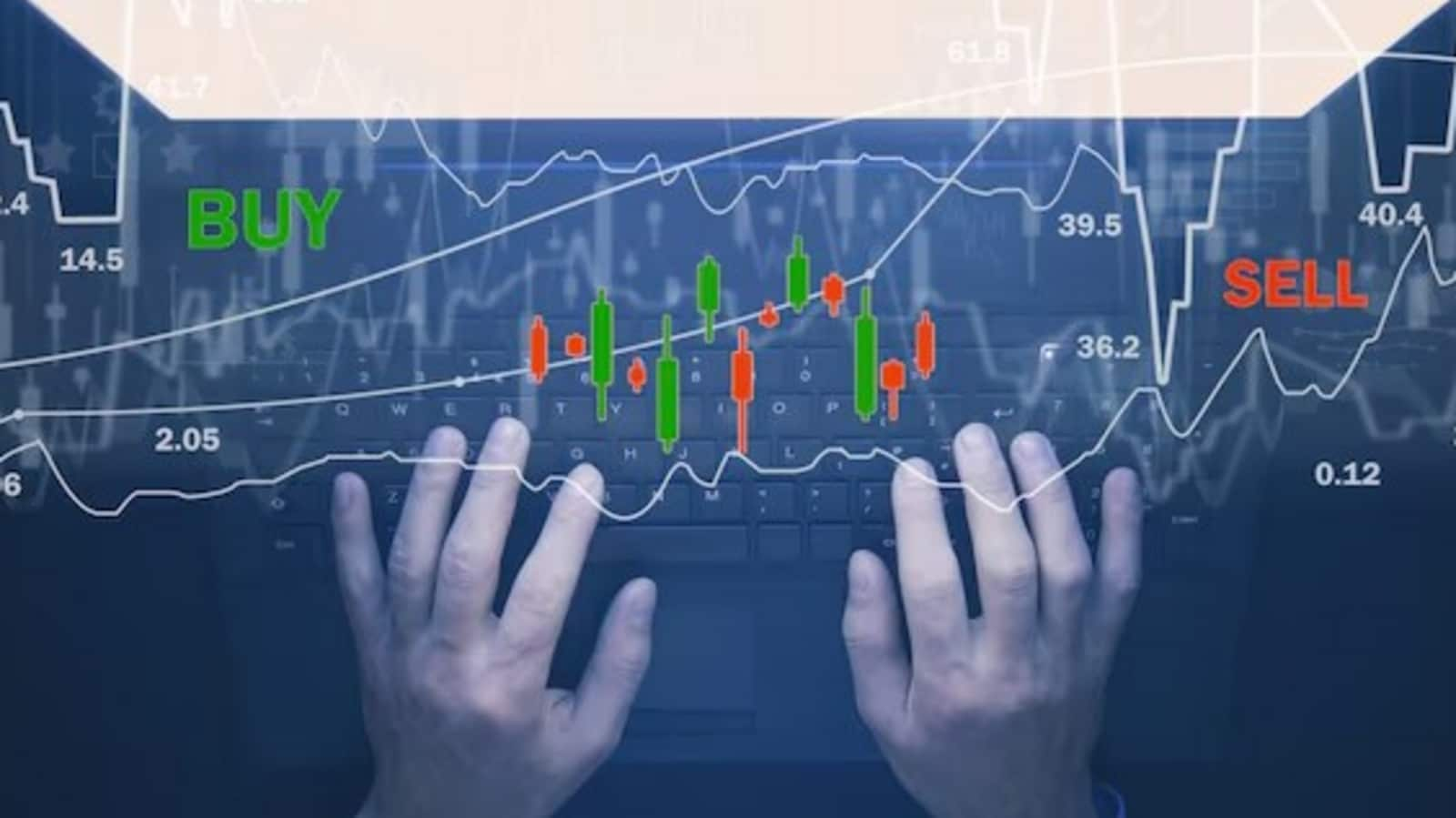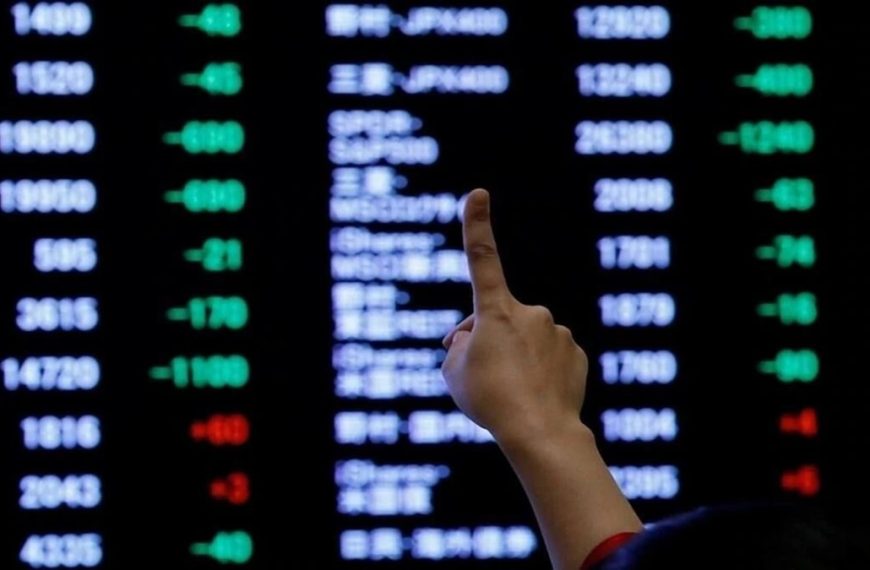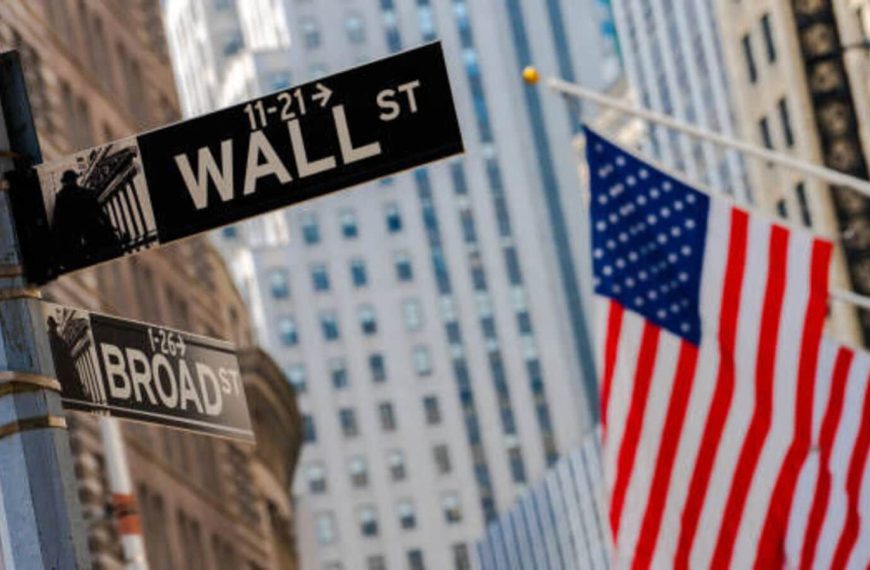Investors are bracing for a tumultuous week ahead as the U.S. stock market grapples with a weakening dollar and soaring Treasury yields. Following President Donald Trump‘s controversial tariff announcements, market volatility has reached new heights, leaving many unsure of the future. With significant earnings reports from major companies like Goldman Sachs, Johnson & Johnson, and Netflix on the horizon, the financial landscape is set for a critical test.
Market Reactions to Dollar Weakness and Tariffs
The S&P 500 has experienced notable fluctuations recently, initially poised for gains after Trump softened his stance on tariffs against several nations. However, the index remains about 13% below its record high from February 19, highlighting ongoing concerns about potential long-term economic impacts. The escalating trade tensions between the U.S. and China have intensified worries, especially as many tariffs remain in place.
- Dollar Decline: The dollar has seen a significant drop against other currencies, reflecting investor unease.
- Treasury Yields Surge: Benchmark U.S. Treasury yields have risen sharply, with the 10-year yield surpassing 4.5%.
Investor Sentiment and Market Volatility
Mark Luschini, the chief investment strategist at Janney Montgomery Scott, describes the current market environment as "very unsettled." Investors are hesitant to commit to large investments due to the high level of uncertainty surrounding tariffs and their economic implications. He noted that the market feels "trapped" by this uncertainty, causing a reluctance to take significant positions in any direction.
The recent market activity has been dramatic, exemplified by a 9.5% surge in the S&P 500 on Wednesday, marking its largest single-day increase since the financial crisis of 2008. Meanwhile, the Cboe Volatility Index, a key measure of market anxiety, remains elevated at around 40, indicating heightened investor concern.
The Impact of Rising Yields on the Economy
Traditionally, the dollar and Treasuries serve as safe havens during turbulent times, but this week has proven different. Walter Todd, chief investment officer at Greenwood Capital, pointed out the unusual behavior of these assets, emphasizing that the U.S. is regarded as the world’s reserve currency and the risk-free asset. He remarked, "Our markets are not acting as such."
The rise in Treasury yields translates to increased borrowing costs for both consumers and businesses, which could shift investment preferences towards bonds over stocks. According to analysts at Barclays, the stability of Treasuries is crucial for the success of risk assets moving forward.
Earnings Reports and Consumer Sentiment
As investors look towards the upcoming quarterly earnings, companies showcasing resilience in the face of changing tariffs will be in focus. Bryant VanCronkhite, senior portfolio manager at Allspring Global Investments, expressed the importance of identifying firms that are confident in their ability to navigate the current landscape.
Additionally, the upcoming data on U.S. retail sales for March is anticipated to provide insights into consumer health, although it may not fully reflect the impact of recent tariff adjustments. A recent survey indicated a significant drop in U.S. consumer sentiment for April, coupled with a spike in inflation expectations, underscoring the mounting anxiety over trade conflicts.
Ongoing Trade Tensions
The market will remain vigilant regarding trade developments, particularly between the U.S. and China, the two largest economies globally. In response to Trump’s tariff hikes, Beijing has escalated its tariffs on U.S. imports to 125%, further complicating negotiations. As Citi strategists highlighted, "China negotiations remain key for markets," signaling that any progress in these discussions could significantly influence market stability.
In conclusion, as the week unfolds, investors will closely monitor earnings reports and trade developments, navigating a landscape marked by uncertainty and volatility. With crucial economic indicators on the horizon, the focus will be on how companies adapt and thrive amidst these challenges.











